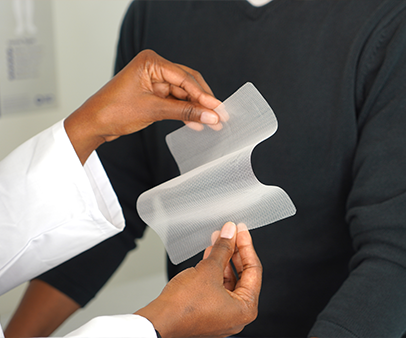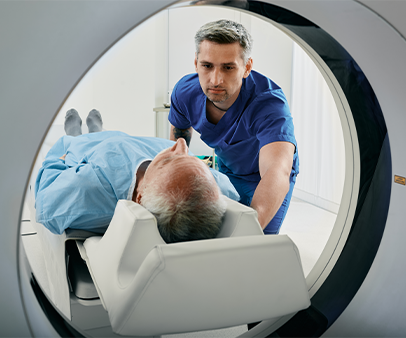The healthcare landscape is in a constant state of flux with a suite of advanced technologies and surgical innovations paving the way to a new era of hernia care and repair. Among the most recent trends are an increased use of robotics, resorbable mesh, machine learning, shared video learning, and virtual care.
1. Robotic Surgery
A minimally invasive approach to hernia repair, robotic surgery has been around for more than 2 decades. The robotic approach allows surgeons to perform more complex and difficult surgery than can be done with open repair or laparoscopic surgery.1,2 Increased use of robotic surgery can also aid in data collection through robotics platforms as well as gathering technical information during the procedure itself.
2. Resorbable Mesh1
While plastic or synthetic meshes have been used in hernia repairs for many years, the use of natural, bioabsorable and biologic meshes is on the rise. Implantation of these meshes can potentially strengthen the body’s native tissue and build scar tissue to reinforce the repair.
3. Machine Learning
Machine learning (a branch of Artificial Intelligence) may be a useful tool in helping to predict surgical risk and reduce unnecessary interventions for low-risk patients and classifying high-impact interventions for high-risk patients.3 Advances in machine-learning can help create tools that have the potential to screen and diagnose patients, predict outcomes, quickly identify potential risks and even potentially unnecessary procedures.1
4. Shared Video Learning
The internet has become an essential tool for physicians and surgeons looking to obtain more information on hernia and surgical education, new learning methods, live lectures, telesurgery, and more.4 Hernia repair training videos are offered through online classes, collaborative groups, and renowned organizations like the American College of Surgeons. With the increased availability of video learning comes the increased convenience for surgeons to watch, learn, and discover different surgical techniques anytime, anywhere.
5. Virtual Care (Telehealth/E-Visits)
Life is hectic and finding time for medical appointments can be more challenging than it is simple. Virtual care offers convenient ways to connect with doctors about health concerns or medical care all without ever leaving the comforts of home. While a hernia diagnosis typically begins with a physical exam, an e-visit can be a good way to get information/insight into steps to receiving a diagnosis, treatment options, and recovery. But before scheduling an appointment, it’s important to be prepared with a list of starter questions or topics to discuss with your doctor regarding your current situation. Check out our Resource Center for checklists and a Doctor Discussion Guide to get your started.
These advancements in technology are not only helping elevate the standards of medical care and improve the outcome and quality of life for patients, they’re expanding the limits of hernia repair possibilities. Contact a hernia surgeon today to get started.
The guidance provided in this article follows general rules that should be discussed with your doctor. This article is for informational and educational purposes only. It does not substitute for medical advice. If in doubt, always consult your doctor.
Related Articles
Join the HerniaInfo.com community! Get notified about our latest articles and updates on all things hernia as they become available.
References
- https://www.facs.org/for-medical-professionals/news-publications/news-and-articles/bulletin/2023/march-2023-volume-108-issue-3/new-approaches-trends-are-emerging-in-hernia-repair/
- https://my.clevelandclinic.org/health/procedures/17968-robotic-surgery-for-hernia-repair
- https://www.facs.org/for-medical-professionals/education/programs/artificial-intelligence-and-machine-learning-transforming-surgical-practice-and-education/
- https://www.ncbi.nlm.nih.gov/pmc/articles/PMC10683420/
This site is not intended as a substitute for professional medical care. Only your physician can diagnose and appropriately treat your symptoms. BD does not recommend the use of any particular physician or team of physicians. Please consult your healthcare provider for advice regarding who should be part of your hernia repair team.
BD-132013 (8/24)


